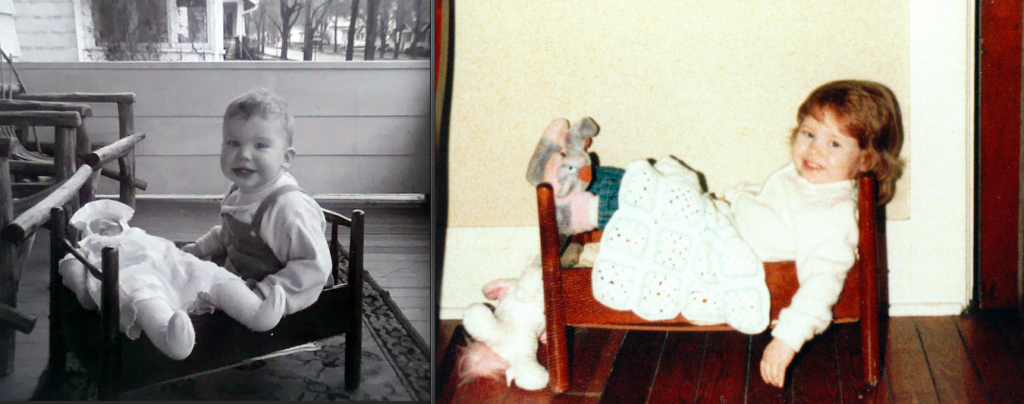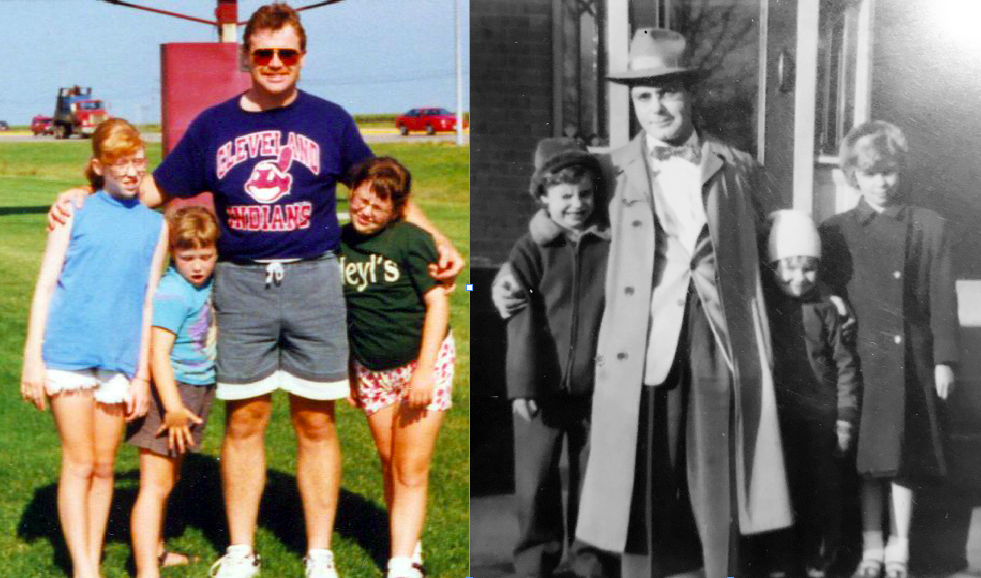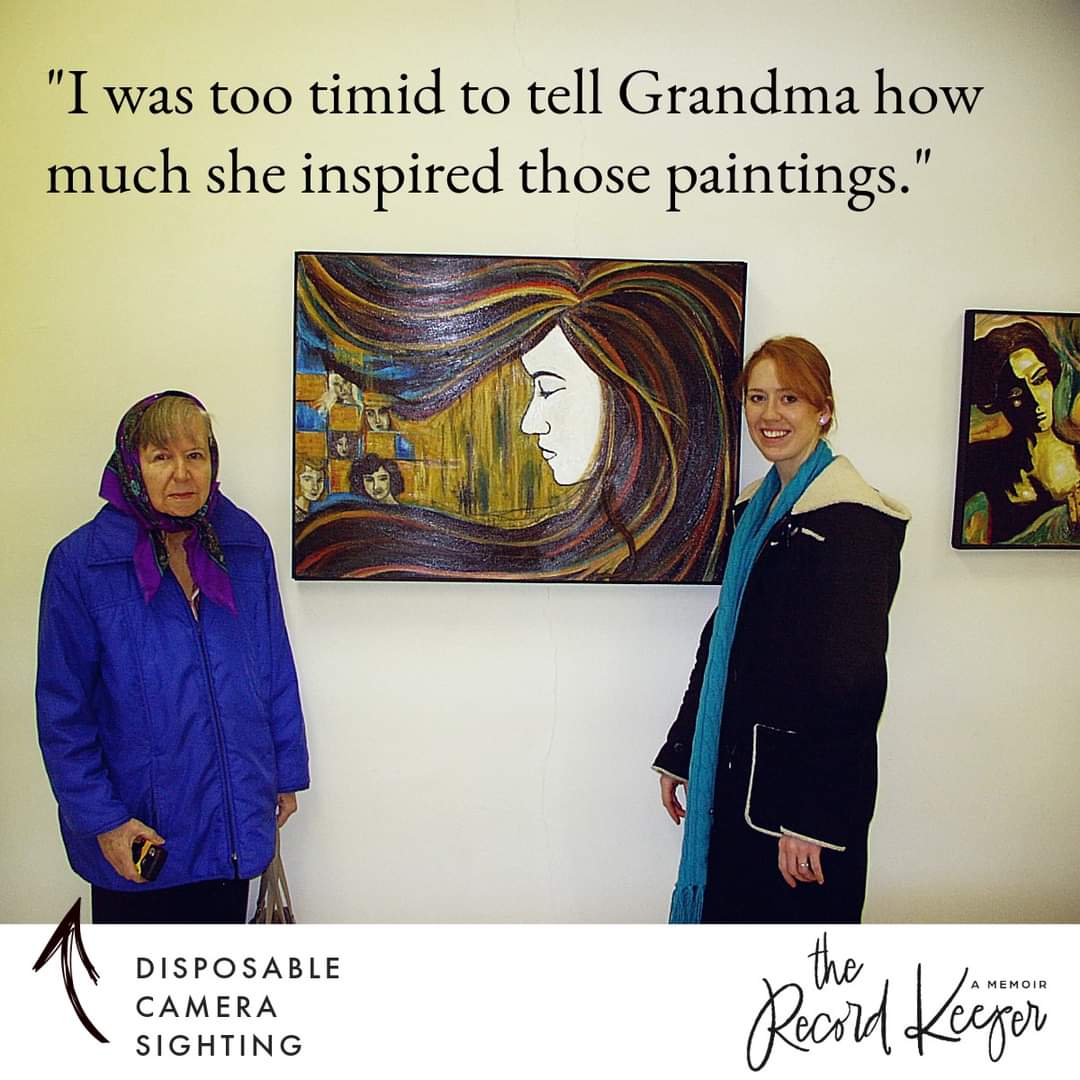So last week’s post about nature vs. nurture probably had a lot of holes in it. I’m neither scientist nor philosopher, but anything that has to do with family trees and history, I’m into. I wonder how many times we hear people talking about nature and nurture within the context of human development in everyday conversation without realizing it. We compare people to family members with similar looks and traits, mostly in a positive light or in good fun, but occasionally it could be an insult, or worse, a deeply affecting identity wound.

Maybe someone is haunted by the idea they will be “just like [their] old man” or their mother because of something that destroyed family bonds. Without understanding the complexities of genetics we may equate someone’s looks with that person being (for better or worse) a repeat of an ancestor in more ways than looks. Is this a “history repeats itself” type of idea? Or is it just superstition? Or inadvertently holding someone to an ancestor’s major accomplishment only for the descendant who looks and/or acts “just like” the ancestor to fall short of the expectations set by well-meaning relatives? Following in their footsteps…
It seems that there is a delicate dance between individualism and conforming. Some of it we can’t help, some of it is a choice. There is also the evolutionary aspect of animals and humans adapting to their environment, and having instincts about things like danger, food, procreation, and climate. And humans and many animal species have learned that staying in groups, tribes, communities, can be much safer than being alone.
The Prodigy

But aside from those primeval instincts, what else would be merely “natural” vs. uniquely natural to an individual or family? As I tried to wrap my head around some of my existential questions, in early 2017 I stumbled upon this article from 2015 by Darold Treffert: Genetic Memory: How We Know Things We Never Learned. The following are a few excerpts from his article.
“Whether called genetic, ancestral or racial memory, or intuitions or congenital gifts, the concept of a genetic transmission of sophisticated knowledge well beyond instincts, is necessary to explain how prodigious savants can know things they never learned…
“Genetic memory, simply put, is complex abilities and actual sophisticated knowledge inherited along with other more typical and commonly accepted physical and behavioral characteristics…
“Carl Jung used the term “collective unconscious” to define his even broader concept of inherited traits, intuitions and collective wisdom of the past.”
He was interested in the study of geniuses. Musical prodigies and savants, brilliant mathematicians, etc. Think A Beautiful Mind and Good Will Hunting.
This October 2016 article by June Javelosa “Memories Can Be Inherited, and Scientists May Have Just Figured out How” says:
“Our life experiences may be passed on to our children and our children’s children, and we may be able to turn that on or off.
“Epigenetics is the study of inherited changes in gene expression…changes that are inherited, but they are not inherent to our DNA. For instance, life experiences, which aren’t directly coded in human DNA, can actually be passed on to children. Studies have shown that survivors of traumatic events may have effects in subsequent generations.
The question, of course, is how are these genetic “memories” passed on?”
Memories & Generational Trauma
This sparks all kinds of things in the imagination. Which leads me to a very interesting podcast episode I listened to last year from Curt Thompson about generational trauma. They reference a book by Mark Wolynn, It Didn’t Start with You, which I listened to for free on Hoopla as an audiobook. I’ll be honest, I am a little skeptical of some of it, but it is intensely thought provoking. The idea that what we experience in the course of generations has a profound effect on our descendants. Here’s the summary of the episode on his podcast Being Known, but I encourage you to give the whole thing a listen.

“Despite our fierce commitment to individualism, trauma is far more likely to follow the way the mind has actually been made, rather than the way we have for the last several hundred years tried to pretend that it works. We would like to think that the trauma that I experience or perpetrate will only have effects on me or the ones upon whom I inflict it. But that would not be true to the way the brain works. As we will discover, what happens in one generation doesn’t necessarily stay in that generation. Rather, it can have the tendency to travel down ancestral lines, leaving others to pay the price for events that occurred long before they were even born. Join Pepper and Curt as we discover the steam that the train of trauma can gather over the course of generations—and what we can begin to do to stop it in its tracks.”
Example of a genogram:

There is a type of family tree many therapists, geneticists, and social services utilize called a genogram. First used in 1974, it’s a diagram showing your lineage but instead of giving dates and places, it brings to light behaviors and major ruptures or trauma within the family’s history. An interesting article addressing the healing of generational trauma »
Before you dismiss it as a meaningless act of dwelling on drama, negativity, and pain, consider how anything in life heals. Healing comes by pinpointing the root cause. You have to acknowledge the pain, the truth, and weighing the cost to begin breaking a stronghold or unhealthy family cycle. Calling it out into the light doesn’t give it power, but sweeping it under the rug, stuffing it down, acting like it never happened—well, that certainly will.
If you missed Part I last week, check it out here »
Don’t miss the next Get a Clue post.
Subscribe to my newsletter and get the latest article, practical
genie research hacks, updates about my book The Record Keeper, and more!

